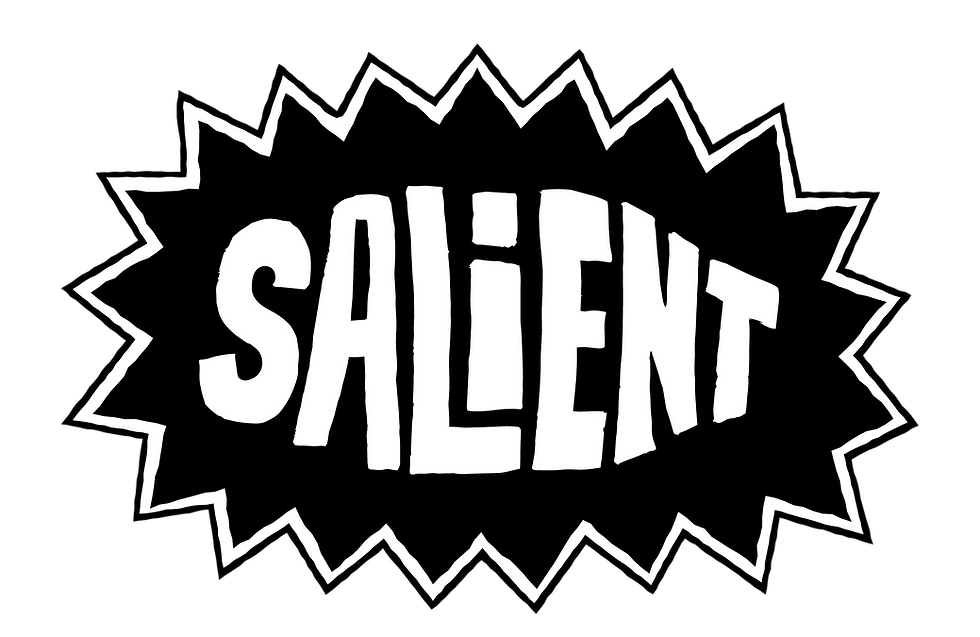The Relevance of Folk Music Today
- Ryan Cleland
- Apr 29, 2024
- 4 min read
Words by: Ryan Cleland (he/him)
I am well aware folk music is not something we all have in common at Te Herenga Waka. In fact, most of us relegate the genre to old-timey banjos, and when our grandparents would reminisce on how great music was back in their day.
Whilst folk music may not be universally popular, activism is. Fighting for what is right. And activism has been intertwined with folk since its origins. Folk music is the music of the people, as it is an honest retelling of the hardships of daily life. Take for instance, New Zealand shanties about the dangerous lives of sailors; and First Nations people of North America singing against British colonial rule.
My personal experience with folk music extends to late last year when I had the honour to speak to Garnet Rogers, a Canadian folk singer-songwriter. And the brother of late Canadian folk legend, Stan Rogers. In my discussions with him, I aimed to glean insight into how the activism demonstrated by his and Stan’s music can serve as examples for the challenges we currently face.
A Short Intro to Stan and Garnet
Stan Rogers rose to fame in the 70’s with a flurry of folk albums, which his brother Garnet helped him record. He was hailed by Pete Seeger as one of the “most talented singers and songwriters in North America”. By the early 80’s he was a Canadian household name, and fast becoming an icon in the music industry. He was known primarily for songs about the daily lives of working people in Canada, and the struggles they faced.
On June 2, 1983, everything changed when he boarded Air Canada Flight 797. Tragically, the flight experienced an in-flight fire, and upon landing at Cincinnati/Northern Kentucky International Airport, it erupted into a blaze, claiming the lives of 23 passengers, including Stan Rogers.
After his brother's death, Garnet Rogers continued to release folk albums until he semi-retired in 2014. He occasionally still does tours, and has also published two books.
Meeting Garnet
Recently I met with Garnet Rogers, when he video-called me from his native Ontario. To his left he had a homely bookshelf; to his right a guitar (one of many which he is known to collect). Garnet was 6ft tall, and he spoke with a deep, booming baritone which echoed through the screen.
Speaking to Garnet, I wanted to know what drove him to weave such political messages into his music. Did we really need politics in music? Garnet was clear. “You write about what you need to write about, and everything is political”. He told me that “particularly for an older, white man, like myself, you can sometimes lose sight of the fact that everything is political. Because you are living a life of privilege—I mean I lead an incredibly privileged life”. He argued that a text, song or poem is always political; the only time you might think otherwise is when you let privilege get in the way.
The essence of folk music can be summed up by something Garnet said to me: “even if I am writing a love song; or just some sort of little observational thing; or a little celebratory piece. I am always aware of how lucky I am and see how lucky someone else isn't”. This notion that simply articulating the thoughts and opinions of ordinary people through song inherently serves as a form of protest against the issues in contemporary society—that's what Garnet and Stan’s music stood for.
Pōneke Shanty Club
I also met with Peter Tyson, the founder and current head of Wellington’s very own Pōneke Shanty Club in order to discuss what his thoughts were. The club started up in November of 2022 and after a few well-placed Facebook ads, the club took off. As of April 2024 it is home to over 450 members.
The club meets regularly on the first and third Thursday of every month at The Welsh Dragon Bar. Each session they sing songs both old and new. When I visited we sang a variety of songs, from old 18th century sailing songs to brand new tunes written by fellow members celebrating Greece’s recent recognition of same-sex marriage.
Tyson said at the core of shanties is the ability to be rewritten over and over again. He told me “there is something inherently political that invites people to rewrite the shanties, I don't know what it is. It's just about songs that are bitching about the boss, the crew and the other countries”. The modern day shanties I heard at the club are exactly the kind of activism that folk music is known for. They are the perfect medium to champion the causes we believe in and make our voices heard.
Garnet seeing Bob Dylan
Finally Garnet mentioned a story which deeply resonated with me. The story was about why folk music is still so relevant, and it was the reason he became a musician.
In 1965 Garnet went to see live, at Toronto’s Massey Hall, the US Folk legend Bob Dylan. Bob Dylan began his performance with a usual acoustic set however, halfway through Dylan swapped to electric. Garnet said “the place erupted” but not in a good way, “[people] were throwing programmes, they were screaming ‘False Prophet’ and all this nonsense. And I remember … thinking this is the best thing I've ever seen. It was at that moment I wanted to be a musician”. His reasoning was not because he wanted to be the subject of fervour and stupidity, but because Dylan played the “music so earnestly, in spite of the fact people hated it.”
That's the essence of folk music—what Dylan accomplished for Garnet. It is the idea that someone will bravely tell you the truth, whether you want to hear it or not. It makes the music more important, and the message more urgent.


Comments